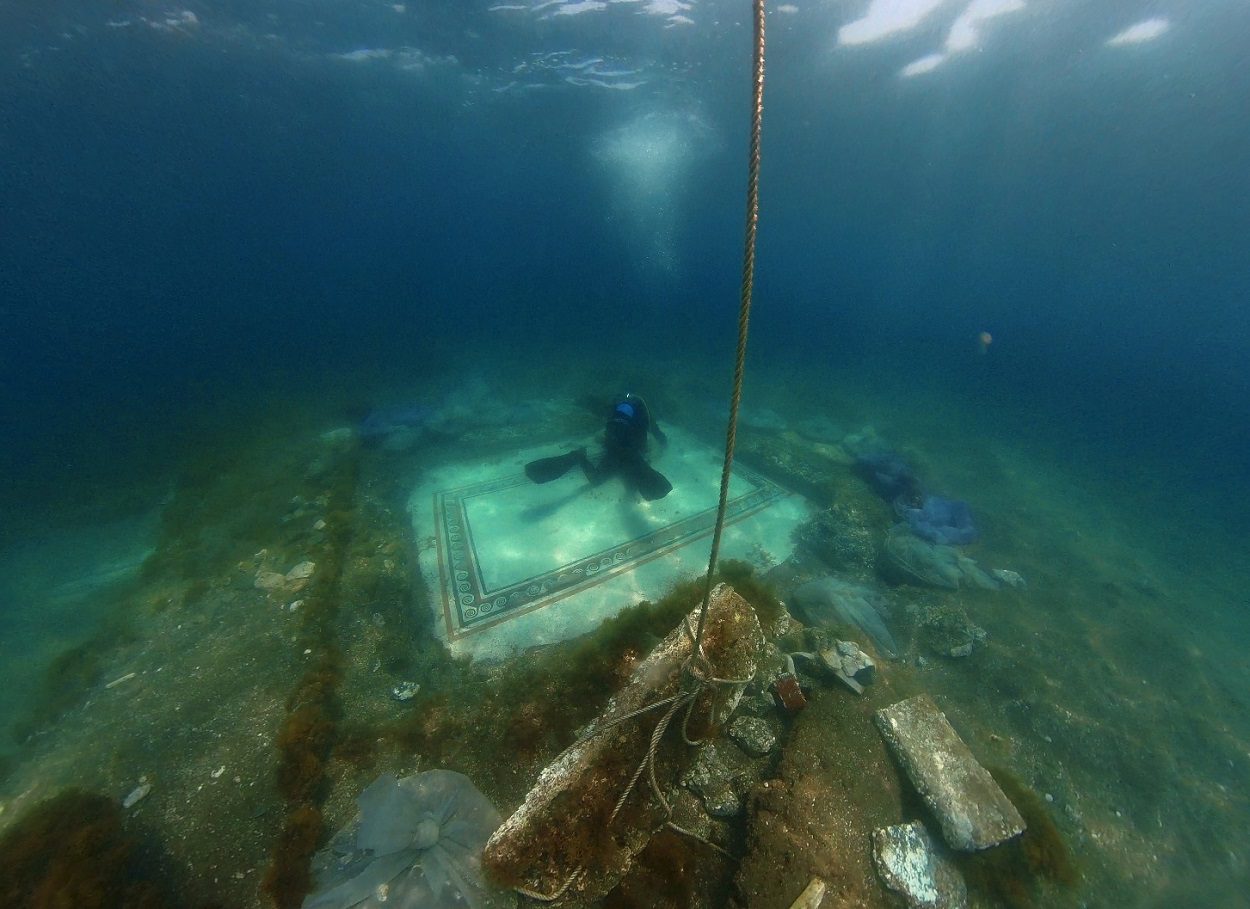Underwater archaeologists from the CSR Restauro Beni Culturali are conducting restoration works of a recently rediscovered mosaic in the submerged remains of Roman Baia.
Baiae is an archaeological park consisting of a partially sunken town from the Roman period, located on the shore of the Gulf of Naples in the present-day comune of Bacoli in Italy.
Baiae developed into a popular Roman resort which was visited frequently by many notable Roman figures. The town would never attain a municipal status, but instead gained a reputation for a hedonistic lifestyle. This is supported by an account by Sextus Propertius, a poet of the Augustan age during the 1st century BC, who wrote that Baiae was a “vortex of luxury” and a “harbour of vice”.
Due to the position of the town on the Cumaean Peninsula in the Phlegraean Fields, an active and volatile volcanic region, local volcanic bradyseismic activity raised and lowered the geology on the peninsula that resulted in the lower parts of the town being submerged.

The mosaic, known as the “mosaic of the waves”, was first discovered over 40 years, but due to sediment changes on the seabed, its location was lost until an announcement of its rediscovery by the Campi Flegrei Archaeological Park in January 2023.
The mosaic would have been part of a high-status building in the Portus Julius area of Baiae and shows a pattern of waves surrounded by borders of pink and black tesserae on a white background.
Underwater archaeologists from the CSR Restauro Beni Culturali are currently removing incrustations from the mosaic and repairing missing tessera by using coloured mortar to match the colour of the original tiles.
The Campi Flegrei Archaeological Park intends for the mosaic to be an underwater attraction after restoration works have completed. The park is a protected area established in 2002 as a unique example in the Mediterranean of archaeological and natural protection underwater.
Parco Archeologico Campi Flegrei
Header Image Credit : Parco Archeologico Campi Flegrei & NAUMACOS





